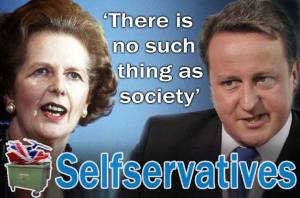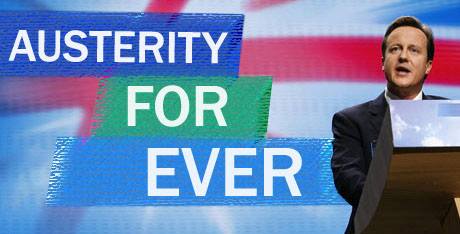
The prime minister is to consider repealing the Human Rights Act after Brexit, despite promising she is “committed” to its protections, a minister has revealed. This is, after all, a government that has always tended to regard the human rights of some social groups as nothing more than a bureaucratic inconvenience. Many of us have been very concerned about the implications of Brexit for human rights in the UK.
The House of Lords EU Justice Sub-Committee has exchanged correspondence with the Government about clarifying the wording of the Political Declaration regarding the European Convention on Human Rights.
There is no justification for editing or repealing the Human Rights Act itself, that would make Britain the first European country to regress in the level and degree of our human rights protection. It is through times of recession and times of affluence alike that our rights ought to be the foundation of our society, upon which the Magna Carta, the Equality Act and the Human Rights Act were built – protecting the most vulnerable citizens from the powerful and ensuring those who govern are accountable to the rule of law.
Observation of human rights distinguishes democratic leaders from dictators and despots. Human Rights are the bedrock of our democracy, they are universal, and are a reflection of a society’s and a governments’ recognition of the equal worth of every citizens’ life.
Nonetheless, the government will decide on the future of the landmark legislation once “the process of leaving the EU concludes”, according to a letter submitted to a parliamentary inquiry.
This disclosure comes despite the Brexit white paper stating last year that the UK would remain in the European Convention on Human Rights (ECHR), after following a warning from the European Union (EU) that pulling out would jeopardise a future security deal. However, the prime minister has previously pledged to leave the ECHR, expressing frustration because there was no Commons majority for doing so.
It is in this context of previous statements of intent that the wording of the letter was described as “troubling” by the Lords EU Justice Sub-Committee, which has warned that the letter casts doubt on more recent, repeated pledges from the government to protect the ECHR.
“Is the government sincere in its commitment to the ECHR?”, Baroness Kennedy of The Shaws, the committee’s chair, asked.
“If so, why has it failed to give assurances that it will not repeal or reform the Human Rights Act, which in essence incorporates the rights set out in the ECHR into domestic British law?”
The committee wrote to the Ministry of Justice after the alarm was raised by the wording of the political declaration, which was agreed with the EU in December alongside the legally binding divorce deal.
The declaration said the UK would merely agree “to respect the framework of the European Convention on Human Rights” – dropping the previous pledge of being “committed” to it. Previous plans to replace the Human Rights Act with a ‘British Bill of Rights’ appeared in the 2010 Programme for Government, and in the Conservative manifesto in 2015. included an emphasis on interpreting rights more subjectively, rather than regarding them as ‘absolute’.
In response, Edward Argar, a junior justice minister, wrote: “The difference in wording does not represent a change in the UK’s position on the ECHR
“A central tenet of our future relationship with the EU is our mutual belief in the importance of human rights and fundamental freedoms.”
But he went on to suggest that the Human Rights Act may be scrapped when Brexit is concluded.
He wrote: “Our manifesto committed to not repealing or replacing the Human Rights Act while the process of EU exit is underway.”
“It is right that we wait until the process of leaving the EU concludes before considering the matter further in the full knowledge of the new constitutional landscape.
Many Conservatives are critical of Labour’s Human Rights Act, claiming it gives “too many rights to criminals” and some have even claimed it undermines “personal responsibility.”
However, in 2015 Amnesty UK commissioned a poll that indicated the British public are not particularly willing to see any change to existing Human Rights legislation, with only one in 10 people in the UK (11%) believing that scrapping the Human Rights Act should be a government aim.
It’s extremely worrying that a government thinks it should pick and choose which rights we are entitled to and select who they deem worthy of them. The whole point of rights and protections is that they are universal: they must apply to everyone equally in order to work at all.
It took people in the UK a very long time to claim the rights we have and we mustn’t let the Conservatives take them away with the stroke of a pen.
The peers said it would imperil human rights if the government “intend to break the formal link” between the UK courts and the EHCR.
Baroness Kennedy said: “Again and again we are told that the government is committed to the European Convention on Human Rights, but without a concrete commitment, and with messaging that is changing and becoming diluted.”
The government have played a long game, however, and have almost certainly always intended to repeal the Human Rights Act. One issue that prevented that happening over the last few years is the Good Friday Agreement, as the Labour government also committed to incorporate the European Convention of Human ECHR into the law of Northern Ireland and to the establishment of a Northern Ireland Human Rights Commission.
The politics of regression
In 2015, wrote about how the government has quietly edited the ministerial code, which was updated on October 15 without any announcement at all. The code sets out the standard of conduct expected of ministers. The latest version of the code is missing a key element regarding complicity with international law.
The previous code, issued in 2010, said there was an “overarching duty on ministers to comply with the law including international law and treaty obligations and to uphold the administration of justice and to protect the integrity of public life”.
The new version of the code has been edited to say only that there is an“overarching duty on ministers to comply with the law and to protect the integrity of public life”.
A Conservative party policy document had revealed that the ministerial code will be rewritten in the context of the UK withdrawing from the European convention on human rights. In order to help achieve these aims the document says: “We will amend the ministerial code to remove any ambiguity in the current rules about the duty of ministers to follow the will of Parliament in the UK.”
In the original Conservative proposals to scrap our existing human rights framework, and replace it with their own, one sentence from the misleadingly titled document –Protecting Human Rights in the UK, (found on page 6 ) – is particularly chilling: “There will be a threshold below which Convention rights will not be engaged.”
Basically this means that human rights will no longer be absolute or universally applied – they will be subject to state stipulations and caveats. And discrimination. The government will establish a threshold below which Convention rights will not be engaged, allowing UK courts to strike out what are deemed trivial cases.
The Conservatives’ motivation for changing our human rights legislation is to allow reinterpretations to work around the new legislation when they deem it necessary. The internationally agreed rights that the Conservatives have always seen as being open to interpretation will become considerably prone to ideological bias, prejudice and open to subjective challenge.
Breaking the formal link between the European Court of Human Rights and British law would mean any judgement from Europe would be treated as “advisory” only, rather than legally binding, and would need to be “approved” by parliament. Such a Bill would profoundly disempower citizens because it will shift the balance of democracy completely, placing power almost entirely in the hands of the state.
Whatever constitutional or political configurations emerge following Brexit, the present threat to rights and equality is a major threat to citizens’ liberties and freedoms. It demands coherent and collective action in the public interest.
Related
A strong case for the Human Rights Act
My work is unfunded and I don’t make any money from it. This is a pay as you like site. If you wish you can support me by making a one-off donation or a monthly contribution. This will help me continue to research and write independent, insightful and informative articles, and to continue to provide support others who are affected by the welfare ‘reforms’. 









